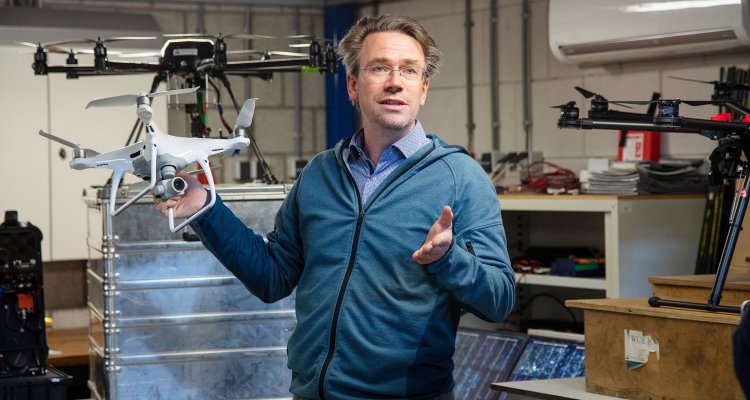
EngD Training activities at Wageningen University & Research
The EngD programme ‘Design for Agrifood and Ecological Systems’ consists of 60 ECTS for education and 60 ECTS for your Design Assignment. The courses in the educational component help you to strengthen your professional and scientific development by providing the necessary background needed for the design assignment.
At Wageningen University & Research (WUR), you shape your EngD educational programme yourself by choosing those courses which fit you best. This means that the educational programme is not set when you start the program, it is an individual education programme. Of course, there are some compulsory courses which you will follow with other EngD candidates. The other courses you choose yourself, in consultation with your supervisors. The courses you plan to do, you will document in your Training and Supervision Plan. This plan will be checked by the EngD programme committee and needs to be hand in to the EngD coordinator one month after starting the programme.
The first year of the programme you mainly fill with the educational component, however you can also follow courses during the second year of the programme. The amount of time spent on the design assignment will increase over time.
Compulsory courses
There are some compulsory coursed at the EngD programme ‘Design for Agrifood and Ecological Systems’. These compulsory courses contain together 12.2 ECTS. All EngD candidates need to successfully complete these courses before graduation. The compulsory courses of our programme are listed below.
Principles of Design
This introduction course in design shows/teaches you basic concepts, steps, tools and methods in design. You will learn to name and explain different design tasks and methods. You learn to assess and reflect on the relative importance of each design task in relation to a design case. Besides, you will learn which methods are available to tackle a design step and learn how to implement them. This course is a 8 ECTS course.
Grasping sustainability
This one-week course will enable you to think about the ‘bigger picture’, grasp sustainability and to apply concepts and approaches to your own project, in a collaborative learning environment. To ensure that the content of the course is aligned to your own project, the content of the course will also be determined by the research topics of the participants. With this course you will earn 2 ECTS.
> Read more about the course Grasping sustainability
EngD Days
During this 3-day course on location you will get to know your colleague EngD candidates much better! You will work on fun assignments, learn about different general topics important for your EngD and much more. This is a 1 ECTS course.
Scientific integrity
Recently, public trust in science has been severely damaged by number of integrity incidents. Scientific Integrity is adherence to professional values and practices, when conducting and applying the results of science and scholarship. It ensures objectivity and reproducibility. Scientific integrity is important because it provides insulation from bias, fabrication, plagiarism, outside interference. To prepare scientists for the integrity issues in their daily scientific practice, this one day course on research integrity is developed. In order to prepare you to cope with integrity problems in your career, you do not only learn about the ethical values and integrity in science during this course, but also you learn how to reflect and evaluate complex case material in small groups. This course is 0.6 ECTS.
> Read more about the course Scientific integrity
Philosophy and ethics in science and design
One can choose from the following:
- Ethics and Animal Sciences
- Ethics in Plant and Environmental Sciences
- Ethics for Social Sciences Research
- Philosophy and Ethics of Food Science and Technology

Free choice courses
The free choice course component consists of 48 ECTS and could be followed at WUR, but also at other 4TU universities and other (inter)national partners. Courses could be specific MSc-levelled courses, courses from (WUR) Graduate Schools and EngD courses form other universities. Visit the 4TU.Stan Ackermans Institute to find programmes and tracks offered by the other technical universities within the 4TU initiative.
Some credits could be gained by attending conferences, joining discussion groups and work visits. Check the Training and Supervision Plan for the amount of credits which could be written for each category.
Exemption
In some cases, you could apply for exemption for education tasks. In that case those credits need to be spend in the design assignment. The total number of credits for the program is always 120 ECTS. A minimum of 60 ECTS should be obtained for the educational part. When exemption is granted there is a possibility to go to a minimum of 48 ECTS for the educational part.